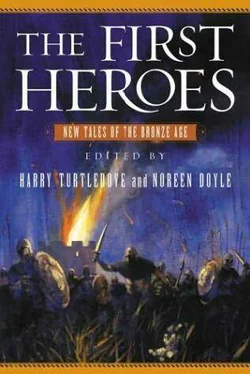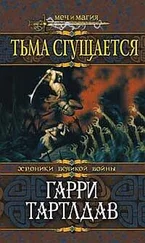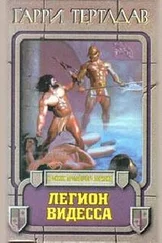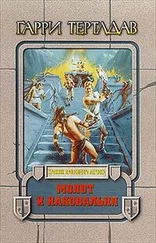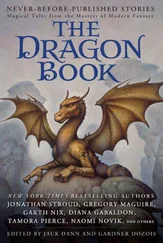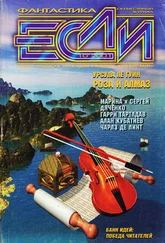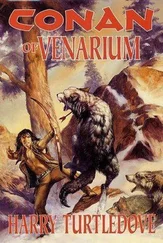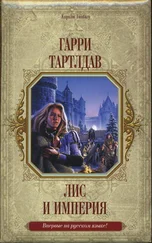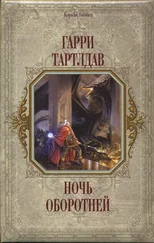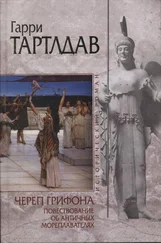Гарри Тертлдав - The First Heroes
Здесь есть возможность читать онлайн «Гарри Тертлдав - The First Heroes» весь текст электронной книги совершенно бесплатно (целиком полную версию без сокращений). В некоторых случаях можно слушать аудио, скачать через торрент в формате fb2 и присутствует краткое содержание. Жанр: Фантастика и фэнтези, на английском языке. Описание произведения, (предисловие) а так же отзывы посетителей доступны на портале библиотеки ЛибКат.
- Название:The First Heroes
- Автор:
- Жанр:
- Год:неизвестен
- ISBN:нет данных
- Рейтинг книги:3 / 5. Голосов: 1
-
Избранное:Добавить в избранное
- Отзывы:
-
Ваша оценка:
- 60
- 1
- 2
- 3
- 4
- 5
The First Heroes: краткое содержание, описание и аннотация
Предлагаем к чтению аннотацию, описание, краткое содержание или предисловие (зависит от того, что написал сам автор книги «The First Heroes»). Если вы не нашли необходимую информацию о книге — напишите в комментариях, мы постараемся отыскать её.
The First Heroes — читать онлайн бесплатно полную книгу (весь текст) целиком
Ниже представлен текст книги, разбитый по страницам. Система сохранения места последней прочитанной страницы, позволяет с удобством читать онлайн бесплатно книгу «The First Heroes», без необходимости каждый раз заново искать на чём Вы остановились. Поставьте закладку, и сможете в любой момент перейти на страницу, на которой закончили чтение.
Интервал:
Закладка:
If it had been a paragraph, manifest Dear Diary prose, Leslie would not have bent forward to read, but the two lines were centered like aphorisms, and there was something odd in the lettering. The monitor brightened slightly as the screen saver turned some corner in its workings, and the words leaped up at her.
Beta-testing for Beta males? And underneath: Real men write their own books.
The Mont Blanc rested in the gutter, a third object to disturb if she wished to turn back the page. Leslie sat back, feeling her face redden in the cool air. Seeking refuge for her gaze, she smacked lightly at the mouse, and the saver vanished, presented her a vista, dim in the darkness, on a burning city. Only the flames actually moved, the fleeing populace and spear-waving invaders caught as in a frieze, but the central building, one side lit by the conflagration, was a recognizable stepped tower, which its builders called "unir" and the successors to Sumer knew as "ziggurat."
Leslie moved her hands to the keyboard, hesitant lest she disrupt the game in progress. Within a minute, however, she had slipped past the undisturbed scenario and was reviewing Trent's interaction with the program, which proved to be the only one open. She checked the system documentation and saw, with a start, that the game had been running for days.
It was the work of a moment to settle in front of her own screen and search its flotilla of icons for Trent's preferred word-processing program. She ran it and found a list of text files: research on Sumer, downloaded online data, and Ramparts.txt, which proved to contain The Ramparts of Uruk, 56,917 words, last revised that afternoon. Trent had moved his work files onto her computer, presumably (it seemed obvious after a second) to allow Ziggurat to run unimpeded on his older machine. She had forgotten what gluttons for RAM these new games were.
The image was poignant: Trent keeping his writing files in a crevice between her hard drive's enormous programs—nothing takes up less room than text—while abandoning his own machine to the demands of Ziggurat. Doing his work at Leslie's desk, getting his e-mail through the laptop, returning at intervals to his own computer where Ziggurat flourished, like a cowbird's chick, to consult with the creature to ensure that his own work not exceed it in grace or wit: this was austere to the point of penitential. Was Trent setting burnt offerings before the thing?
She clicked on another file, BookTwo.txt. It appeared to be mostly outline, but there was a title, Wheels for Warring. Leslie shook her head. It was just like Trent, to start with a safe title and have a better one ready for the next book.
The outline was followed by notes, which Leslie scrolled through idly. Some comprised bits of research that she had passed to him; others surprised her. Only two types of personages are portrayed naked in Sumerian art: humiliated prisoners, and priests engaged in sacred ceremony. Why no sexual connotations? Leslie shifted her bottom on the wicker chair and smiled. For Trent all nudity held sexual connotations. The dogwalker outside, glimpsing screen light falling on her breasts, doubtless felt the same. Fragments of those statuettes of worshipers were found incorporated into the floors of the Inanna Temple. I.e., these objects remained sacred, even when no longer used?
That lone blue eye in the display at the Met: they often used lapis lazuli for eyes (look at the blue-eyed ibex in the next case!), though they could never have seen such features. A legend of men with blue eyes?
"No, Jurgen, you must see my palaces. In Babylon I have a palace where many abide with cords about them and burn bran for perfume, while they await that thing which is to befall them." Epigraph? (No.)
Afghanistan is the opposite of Mesopotamia: a land crumpled into inaccessibility. Geographical barriers everywhere, the bane of invaders; while Sumer was open to all armies, the "Kalam" as flat as a board game.
Title for Book 3: A Game Without a Name. Problematic because the Sumerians of course knew its name; we don't. The game as metaphor for war; if it was also used for divination, then a guide to the Sumerian cosmos & psyche. Historians call it the game "of Ur" since that is where the first boards were found; if I call it the Ur-game can I make allusions to the original FORTRAN "Adventure"? How many of Ziggurat's players were even alive in 1975?
Leslie created a new file, named it Book3.txt, and began to type. Trent, you don't want to construct one of your novels around that hoard game. You are appealing to an audience that won't spend its money on hooks.
You want to write about a female protagonist, preferably young and, though not herself powerful, able to glimpse its workings. If you must include that game, you can show her watching it played: it was laid out in the streets, remember? A little girl can watch almost anything unnoticed.
Women bring food, nurse the wounded, bury the dead. You want an aperture on war? Don't use the viewpoint of a young soldier; soldiers see almost nothing of the totality of war, they are brought in like a load of rocks and then hurled. Women see everything, and when it is over, they are often what is left.
The wind blew the smoke roaring through the streets, blinding the fleeing villagers and lofting scraps of glowing reed to settle like fireflies on the roofs not already burning. Scattered soldiers came at them, whom Nanshe first saw terrifyingly as the enemy, then realized with a greater shock were the defenders of Lagash. One flung away his shield as he sprinted past.
They had sought to watch the battle from the rooftops, but the wheeling armies had raised a cloud of yellow dust, immense as those seen in the sky, which obscured everything. The city wall was lined with spectators, who enjoyed a better view of the action, although the settlement across the canal was closer. Perhaps they saw the flank of battle shift then spill into the barley fields, concealed from the village by stands of date palm and poplars; perhaps the waving cityfolk had been trying to warn them. Nanshe could remember little of that disordered hour, of anxious inquiry between adults who blocked her view, the surmises and cries, people swarming down the ladders to shout questions, to call for their families, and finally to run.
Nanshe had become separated almost immediately, buffeted by legs and swinging arms. She tried to head home, but a cry to make for the city gates sent the crowd rushing against her, and by the time she emerged from the side streets she could smell smoke. Someone lunged for her, not the person she later saw stabbed with a spear, though events seemed alike unreal save what was happening now, grit biting her legs where she crouched. She could see Sud lying in the road, and started repeatedly when a large scrap caught in the rubble waved like a sleeve.
Smoke spattered the sky, and when night fell she thought it another gout from the burning market, to recede after some minutes.
At some point she found herself stumbling over littered ground, eyes stinging in the darkness. Unnatural sounds reached her, a loud snap or the crash of walls. A groan from somewhere, and for an instant she imagined the slave moving confidently through the blackness, eyeless and unsmarting, calling out in an accent the marauders would recognize.
A shift in wind pushed aside smoke to disclose still-burning houses, flames from their collapsed roofs flickering through doors like glowing ovens. Occasionally Nanshe could hear a faint shout call down, and so knew the direction of the city walls. Lips cracked, she groped across open ground to the well, which she discovered surrounded by corpses. Desperation drove her to the exposure of the levee, where at last she fell forward to drink.
It is Gilgamesh come to subjugate Lagash, if you like, or else the Gutians sweeping out of the hills. Better perhaps a Sumerian enemy, for Nanshe had been assured that the armies would clash on the plains beyond the cultivated fields, or else before the city gates, and that soldiers would only kill soldiers. Hiding in the tamarisk brush, Nanshe understands only that what the boys had said about war was not true. She is not pondering the implications of this, any more than she is thinking about her parents or their smoldering home, for she is in a kind of shock. Alert to any movement in the brightening morning, she knows that nothing around her will proceed as she had been told.
Читать дальшеИнтервал:
Закладка:
Похожие книги на «The First Heroes»
Представляем Вашему вниманию похожие книги на «The First Heroes» списком для выбора. Мы отобрали схожую по названию и смыслу литературу в надежде предоставить читателям больше вариантов отыскать новые, интересные, ещё непрочитанные произведения.
Обсуждение, отзывы о книге «The First Heroes» и просто собственные мнения читателей. Оставьте ваши комментарии, напишите, что Вы думаете о произведении, его смысле или главных героях. Укажите что конкретно понравилось, а что нет, и почему Вы так считаете.
